A third-generation farmer and world-renowned mandarin breeder/grower, Craig Kaprielian is the owner of Fruit World Nursery and Blum Agriculture. He also manages the Kaprielian family ranches for Fruit World, a marketing company started by his daughter Bianca and her business partner CJ Buxman. OPN recently caught up with Craig for a conversation about his passion for seedless mandarins, what it’s like to transition from conventional to organic ag, his advice for other transitioning growers, and more.
Craig Kaprielian
Can you tell us about your background in ag?
I was born into the agricultural industry. My father and grandfather farmed stone fruit, grapes, citrus, nuts, cotton, and quince. My own professional farming career began in 1979 after graduating with a degree in Agribusiness from Cal Poly. I started out growing peaches in the San Joaquin Valley.
In 1992, on a trip to France, I happened to try some delicious tangerines from South Africa that didn't contain seeds, which spurred my interest in seedless citrus. I later toured South Africa and consulted with a citrus variety expert there and then traveled around the world collecting seedless mandarin varieties that I wanted to bring home and grow in California.
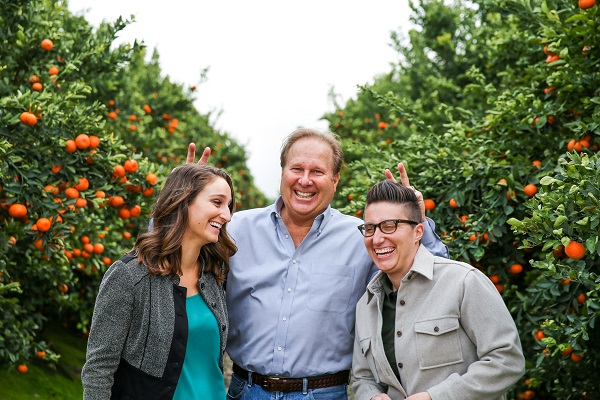
Angelica, Craig, and Bianca Kaprielian
I started Fruit World Nursery in 1996, where we began growing citrus trees in greenhouses in containers with soilless media, such as peat moss, coco peat, pearlite, and lava, with nutrient supply through a computerized dosing program (fed through a drip system). This was different from the traditional California method, which consisted of growing in the ground and then digging up the trees to sell to commercial orchards who would replant and continue to grow them.
"In 1992, on a trip to France, I happened to try some delicious tangerines from South Africa that didn't contain seeds, which spurred my interest in seedless citrus. I later toured South Africa and consulted with a citrus variety expert there and then traveled around the world collecting seedless mandarin varieties that I wanted to bring home and grow in California." -Craig Kaprielian
Were you the first person to grow seedless mandarins in the US?
I was one of the first farmers to commercially plant seedless clementines in California and then extend the season with my own proprietary varieties. With California mandarins now available from October through May, it’s hard to remember that just a couple decades ago this industry really didn’t exist. At Fruit World Nursery, we were on the forefront.
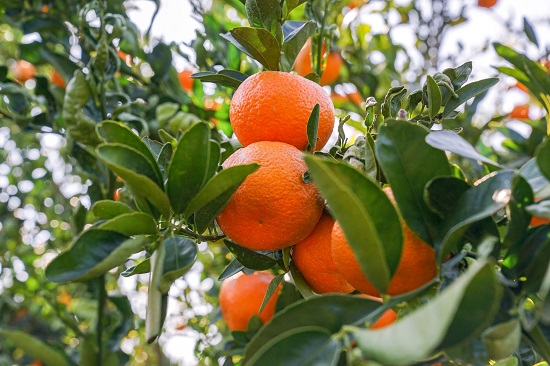
Fruit World organic mandarins
When did you first become interested in organic food and organic growing methods?
My desire for organics began when my children were young, and I started paying attention to the food we were eating. I wanted to feed my family in a healthy and sustainable way.
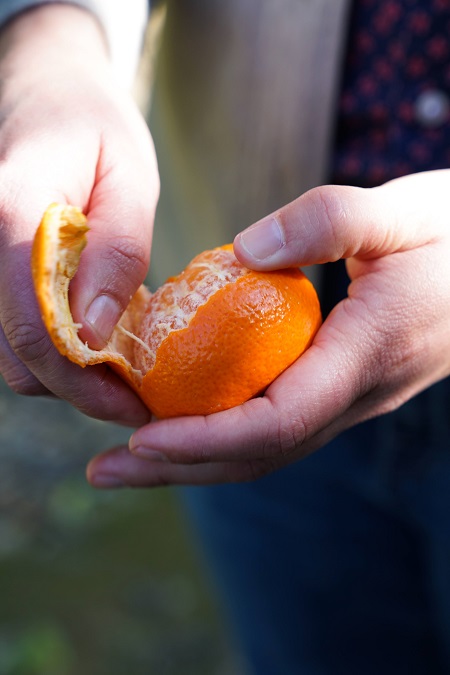
We started growing some mandarins organically in 2002. After about five years, the industry conditions made growing organically unfeasible for us financially, so we transitioned out. Even still, there were a number of organic practices we continued to employ on our ranches (the use of organic compost, nutrients, pesticides, and compost tea, for example).
"I was one of the first farmers to commercially plant seedless clementines in California and then extend the season with my own proprietary varieties. With California mandarins now available from October through May, it’s hard to remember that just a couple decades ago this industry really didn’t exist. At Fruit World Nursery, we were on the forefront." -Craig Kaprielian
We began growing organically again in 2017 after Bianca and CJ started Fruit World and encouraged us to make the transition. The advances in organic inputs and knowledge have made the transitioning process more feasible for us. Plus, with Fruit World handling our sales, we trust we will get the premium we need to make the added costs pencil out.
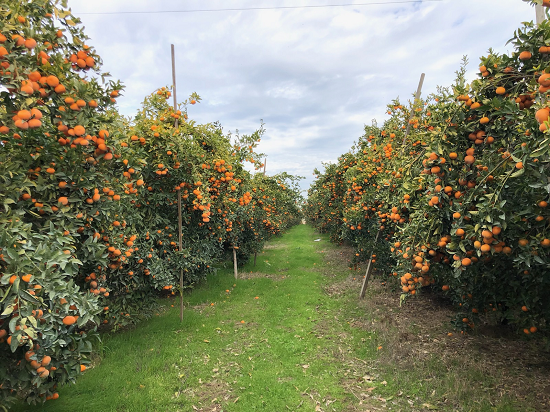
Fruit World Tango trees
What were your thoughts when Bianca told you that she wanted to pursue a career in ag, with a focus on organics?
Just like my parents and grandparents did for me, I encouraged my children not to choose career paths within the ag industry because of the volatile and unpredictable nature of making a living in farming. However, when Bianca talked to me about the program she planned on attending at the UC Santa Cruz Center for Agroecology and Sustainable Food Systems in 2010, I felt excited that she was taking an interest in agriculture and particularly in sustainable farming. I did tease her about paying for a farming education when she had the option to come home and get paid to learn to farm, but I understood that she would gain valuable knowledge and a different perspective that she would eventually bring back to our family business.
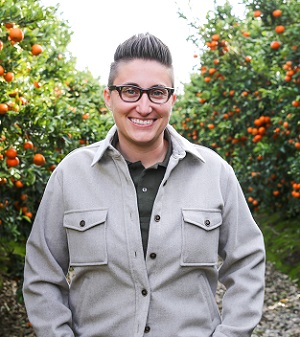
Bianca Kaprielian
Because Bianca and her business partner CJ launched Fruit World with the goal of specializing in organics, you’ve been tasked with transitioning the Kaprielian family citrus ranches. What has that process been like for you?
I've always regarded farming as a business, not as a lifestyle, so transitioning our family’s ranches from conventional practices to organic was an easy decision. Consumers are asking for more organic fruit—so the market is there and can use more supply. Financially the numbers work.
There was a learning curve involved with the transition. One of the most important resources for me has been Dr. Elaine’s Soil Food Web Approach, which helps farmers restore the ecological functions of soil through bacteria and fungi in order to produce an environment that supports plant health and protects plants from attack. I really enjoy making soils more productive through a natural approach versus synthetic chemicals.
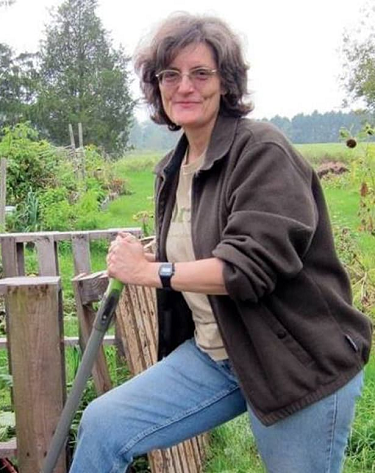
Dr. Elaine Ingham, founder of Dr. Elaine’s Soil Food Web Approach
"I've always regarded farming as a business, not as a lifestyle, so transitioning our family’s ranches from conventional practices to organic was an easy decision. Consumers are asking for more organic fruit—so the market is there and can use more supply. Financially the numbers work." -Craig Kaprielian
Can you tell us about your company Blum Agriculture and the products it offers?
Blum is a patented farm management system. It utilizes cloud-based technology, plant sensors, artificial intelligence, and autonomous robots and drones to remove the inefficiency, waste, and scalability limitations from traditional farming practices (both conventional and organic). My business partners and I created Blum to satisfy the need for technological innovation in the food production industry, in particular to minimize the increasing global food crisis and environmental degradation.
.png)
Do you have any advice for farmers who are interested in transitioning from conventional to organic growing?
Although the time and cost factors involved with transitioning to organic can feel daunting, growing organically is worth the time, energy, and effort. It’s so rewarding knowing we are positively impacting the land and contributing to the wellbeing of the broader community. With organic farming, I know that I am raising crops that are safer for humans and the environment, nutrient dense, and full of flavor!






